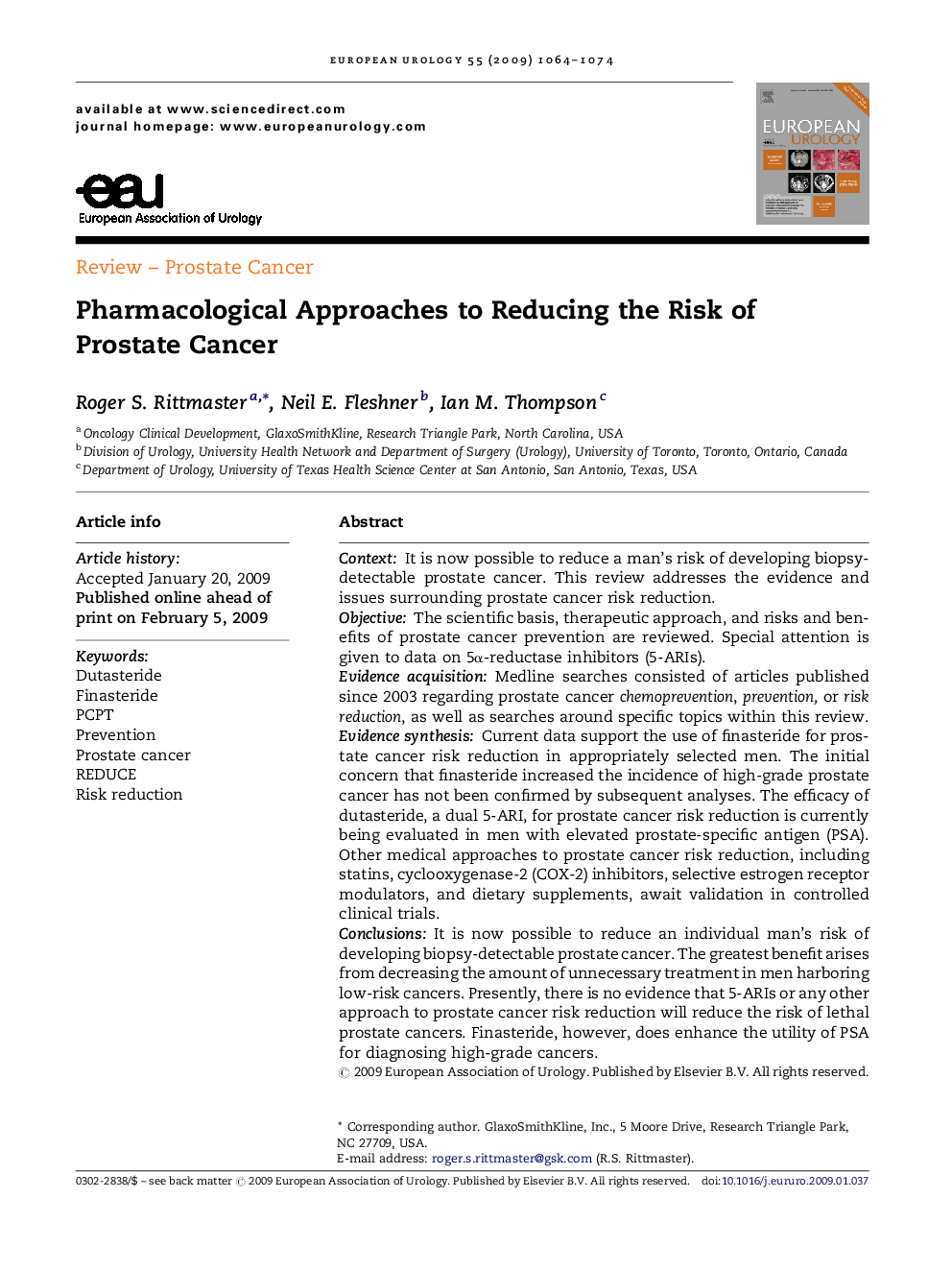| Article ID | Journal | Published Year | Pages | File Type |
|---|---|---|---|---|
| 3925484 | European Urology | 2009 | 11 Pages |
ContextIt is now possible to reduce a man's risk of developing biopsy-detectable prostate cancer. This review addresses the evidence and issues surrounding prostate cancer risk reduction.ObjectiveThe scientific basis, therapeutic approach, and risks and benefits of prostate cancer prevention are reviewed. Special attention is given to data on 5α-reductase inhibitors (5-ARIs).Evidence acquisitionMedline searches consisted of articles published since 2003 regarding prostate cancer chemoprevention, prevention, or risk reduction, as well as searches around specific topics within this review.Evidence synthesisCurrent data support the use of finasteride for prostate cancer risk reduction in appropriately selected men. The initial concern that finasteride increased the incidence of high-grade prostate cancer has not been confirmed by subsequent analyses. The efficacy of dutasteride, a dual 5-ARI, for prostate cancer risk reduction is currently being evaluated in men with elevated prostate-specific antigen (PSA). Other medical approaches to prostate cancer risk reduction, including statins, cyclooxygenase-2 (COX-2) inhibitors, selective estrogen receptor modulators, and dietary supplements, await validation in controlled clinical trials.ConclusionsIt is now possible to reduce an individual man's risk of developing biopsy-detectable prostate cancer. The greatest benefit arises from decreasing the amount of unnecessary treatment in men harboring low-risk cancers. Presently, there is no evidence that 5-ARIs or any other approach to prostate cancer risk reduction will reduce the risk of lethal prostate cancers. Finasteride, however, does enhance the utility of PSA for diagnosing high-grade cancers.
